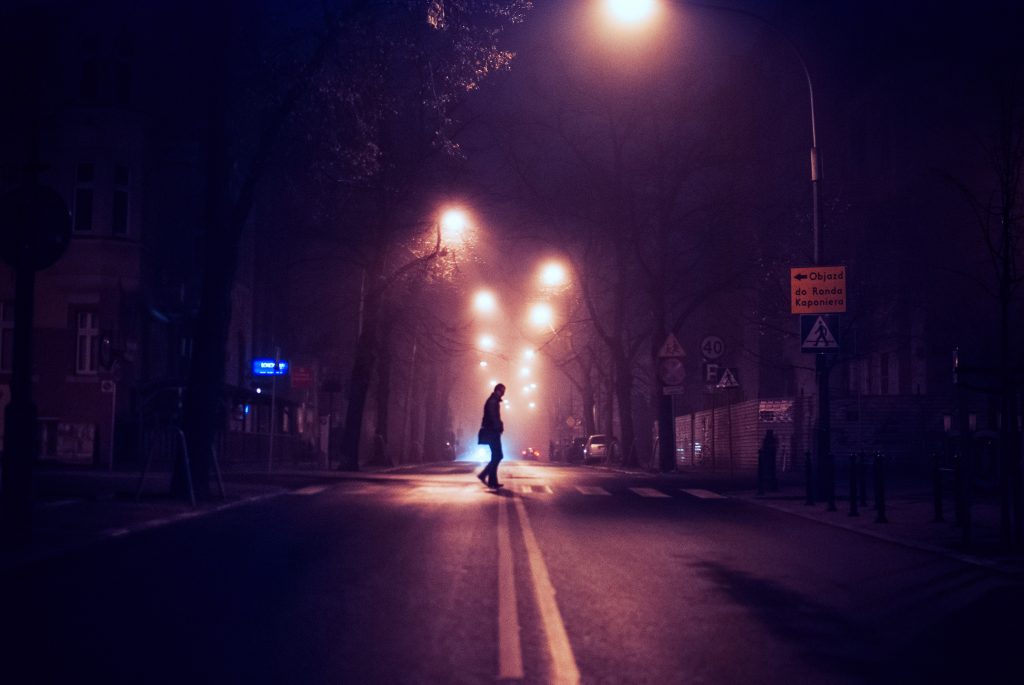Razbliuto
I recite in the dark
Ya’aburnee, Arabic for you bury me
Fernweh, German for a longing to be away
Hyggelig, Danish for a night with cold beer
and friends before a warm fire
or L’appel du vide, French for the urge to jump
from high places. The words lulled me until
I stopped on Razbliuto, Russian for the feelings
you have for someone you once loved
but now do not. After settling the baby
who woke wet with a fever, I return
to the list of words designed to inspire
the poet who is still asleep in me
as dawn approaches. I write Razbliuto down
in looping, exaggerated cursive, then watch
out the window as a blue jay thieves a branch
from another nest. A black hole, the word
collapses lovers and friends
into smaller and smaller elements –
a rock from a hike, a cinnamon scent,
a letter written by a hand I once drew
stars into, then wept into even
as I forgot the texture of those fingers
on my tongue. I look the word up
only to find it doesn’t exist, just
the root word, razliubit, to stop
loving, recorded in a long list
of urban legends like the German
Scheissenbedauern, the disappointment felt
when something turns out not nearly
as badly as one expected.
And what did I expect? The girl
who convinced her sister gnomes would visit
if she left offerings of money and chocolate
on a stump – the girl, now a mother,
who lets the baby cry a little longer
so she can corner a few bulky words, drag them
up by the ankles, and shake their pockets clean.






